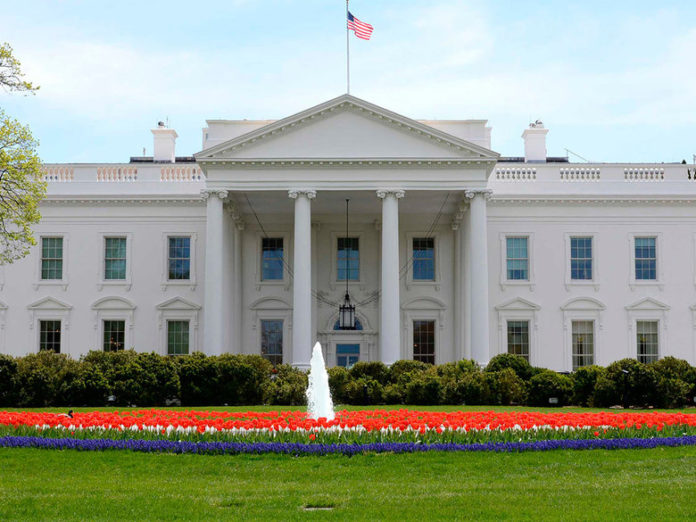ZACKERY GOSTISHA; Guest Writer; gostiszk@plu.edu
Off-year elections are a lot like the cups of coffee I drink: there’s too many, I talk too much about them and no one else cares. Except people should care about this one.
On the night of Tuesday, Nov. 7, voters across the United States elected city councils, mayors, school boards, state representatives and governors. In a year dominated by Republican politics, Democrats had an overwhelming victory.
In New Jersey, the famous Chris Christie, a Republican governor known for angry ranting was blocked by term limits. The New Jersey Attorney General and Secretary of State were also Republicans. Democrats had controlled the state Congress, but disagreements with the governor had led to almost nothing happening for a few years.
Republican Kim Guadagno was Chris Christie’s heir apparent, and the only way to keep any Republican control of New Jersey’s government. She lost by thirteen percent to Democrat Phil Murphy, and Democrats won the Attorney General’s office and Secretary of State in addition to the governorship. New Jersey is now completely controlled by Democrats at every level of government.
Virginia had a governor and executive branch that were all Democrats, but a legislature with 18 more Republicans. Since the Republican party controlled the entire state legislature, Republican victory in the governor’s race would have turned Virginia into a completely Republican-controlled state.
Virginia’s governor race is particularly notable because of how horrible it was. The Republican candidate, Ed Gillespie, said that the Democrats would “Allow Mexican drug cartels into the country whenever they want,” “support non-Americans for office” (meaning people of color), argued that taking down Confederate monuments is anti-American and a laundry list of other reprehensible statements. The polls in Virginia were extremely close throughout, and the race was expected to lean Democratic but without conclusive results. The Democrat, Ralph Northam, won by nine percent, far more than anyone expected. During the past five election cycles, the largest margin of victory was six percent.
Remember how Republicans had 18 more Representatives than the Democrats? Well guess how many seats the Democrats won? 18. So now there is an exactly even split between the two parties in the Virginia House of Delegates, and Democrats retained the entire Executive branch.
The individual stories of many candidates are even more impressive than just the numbers. The first openly transgender member of a state legislature, Danica Roem, was elected in Virginia. Fun Fact: she beat a guy who bragged about being “The chief homophobe in Virginia.” Nice Karma there. When asked about this, she replied that “I don’t attack my constituents. Bob is my constituent now.”
In New Jersey, an official who made fun of the Women’s March lost to a woman who decided to run after going to a meeting and complaining about his comments. In Helena, Montana, an anti-refugee mayor lost to a Liberian refugee. There’s more excitement for progressive candidates than I have for more caffeine.
All in all, it was a great day for Democrats and progressives as a whole. It also proves that they can’t get distracted from the real issues.
Democrats will need to win elections if they want to do something about our current state of politics. Opposing Trump and focusing on how much they oppose Trump will help win them elections. But combining an opposition of Trump with a legitimate policy platform leads to even better results.
In Virginia, exit polls show voters liking Ralph Northam and the Democrat’s Health Care policy being one of the largest factors swaying votes. In New Jersey, Murphy emphasized anti-corruption drives he favors, and criticized the Republican officials in power for corruption. Even Roem based her campaign around transportation problems in her community. Good policy wins elections, and it doesn’t matter how great you are at communicating if your words don’t mean anything.
Democrats need to build legitimate plans and ideas, and have a lot of them. They can’t be focused just in opposing Trump—it’s important, but they need to be able to govern. They need logical reform proposals. They need political structures. They need to be problem solvers, not problem blockers. So far, they’ve done a great job of realizing this, and that won elections.
Democrats also shouldn’t ignore the real issues existent within their party. It’s true that there’s not huge conspiracy or massive corruption, but there are legitimate questions that need to be addressed, especially when it comes to inclusivity.
The whole point of the Democratic party is inclusivity, so imposing ideological litmus tests, whether moderate or leftist, is wrong. Change needs to come from within the party to make it really work as it should. More young people need to be energized as well, as the party has an aging power structure dominated by people middle-aged and older. Opposing Trump, and winning some elections because of opposition to Trump, can’t completely overshadow these problems.
When Democrats stay on message they win. When Democrats offer legitimate policies, they win. When Democrats work for their communities they win. They can’t let Trump be a distraction.
So, much like my coffee, people should care more about this off-year election.


















